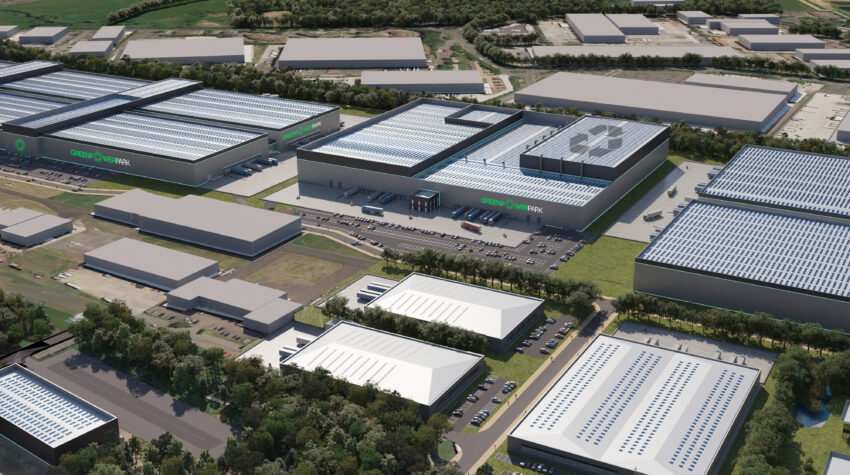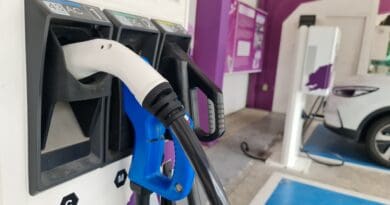Time to get our heads out of the sand on battery supply issues
The UK is currently lagging behind other nations in securing battery cells to meet soaring power demands. However, Greenpower Park’s battery expert Richard Moore believes that by learning lessons from the past and acting quickly the UK can resolve the crisis in time.
The UK has got to get its head out of the sand if it thinks it’s going to hit its battery cell targets. The government and stakeholders have been slow to react to battery cell supply demands and if we don’t take action now, there will be a major risk to the security of energy supply, which will leave the nation in a perilous state.
Currently, here in the UK, we have one operational gigafactory – Envision AESC – which is producing up to 6 GWh of energy per year – that’s all. According to The Faraday Institution’s 2022 gigafactory report, to support the automotive industry alone, the UK will need 100 GWh per annum by 2030 and this is expected to double to 200 GWh by 2040.
As we move to electric energy there will be a massive increase in demand to meet multiple needs, heating our homes and powering road transport to eventually even the flights we take. The demand crosses multiple industrial sectors outside of automotive and we need the security of supply to guarantee we can source battery cells to meet it.
But this isn’t the first time the UK has had a security of supply issue. We faced a similar crisis with the supply of steel in the 1940s and 50s.
Lessons from history
During the Second World War, demand for steel increased dramatically and by the mid-1940s the UK had to ramp up supplies to build and replace military and civil equipment, resulting in the collection of 110,000 tonnes of scrap metal per week. In addition, the UK government quickly nationalised and developed steel mills to meet demand. Then, throughout the 1950s, steel supply increased, and the government ensured a ‘security of supply’ and still does now.
I believe we can draw a parallel with what happened with the steel industry during the middle of the last century, and the situation with battery cell supply today.
Most other countries in Europe have already figured out the challenge they are facing and have started building their security of supply – there are far more operational and planned gigafactories in the rest of Europe than in the UK. We can see this gap and urgency from the way the European gigafactory footprint is being deployed for example. It’s been deployed with government support to incentivise the existing cell suppliers to move there to countries such as Germany, Poland, Spain, Norway, Hungary and the Netherlands – and the incentives used are significant.
To futureproof battery cell supply in the UK in the same way as steel was almost 70 years ago, we need to invest in start-up gigafactories and at the same time become competitive in the global market by attracting global cell suppliers to the UK with fiscal, sustainable and recruitment incentives.
The three key solutions to hitting battery cell targets in the UK
The UK can demonstrate that it has the right people at the right costs with the right skills and training programmes, which makes us competitive in the global market. Although our labour costs may not be as competitive, our level of training is stronger which balances it out – enabling us to act faster. Greenpower Park – which offers an all-in-one solution for battery research, industrialisation, manufacturing, testing and recycling – perfectly fits the bill here, we just need more investment to get the job done.

Green energy is no longer a ‘nice-to-have’ offer for customers – many industries are now fully committed to sustainable power sources. In fact, clean, renewable energy is a must to be competitive in the global market and Greenpower Park will be powered at 100% sustainable energy, with opportunity for onsite solar power to boost this.
Finally, fiscal incentives. We need to lay out our fiscal incentives – at a national and regional level – to global cell suppliers and their associated supply chain in a way that meets their assessment criteria. Our incentive policy needs to be broader beyond the automotive industry as we know that future demand will be in multiple sectors. It’s a seller’s market and we need to know what our competition is offering so we can match or better that offer, have a strong position and start dialogues with cell suppliers.
These three solutions will help us catch-up fast and compete with the rest of the world.
Holistic solution
But to make this work, the individual solutions need to be deployed in parallel. If we work together we have a much stronger strategy.
An existing global cell supplier that already has a security of supply and is a known entity could be the stepping stone for the UK, and could accelerate the ability of start-ups to achieve their goals.
If we can incentivise global cell suppliers to the UK, support developing start-ups and guarantee green energy at the same time, then together we can gain a UK security of supply of battery cells and power the future.
The Industrial Revolution in the 19th century saw the transition to new manufacturing processes. This included new chemical manufacturing and iron production processes and the UK led the global market for the first half of the 19th century. Then came the Second Industrial Revolution in the late 19th century when the UK realised steel was cheaper than iron and so prioritised the mass manufacture of that commodity.
And now, here we are in the Electric Revolution, and the Faraday Institution highlights a global shortage of raw materials for battery cells over the next 30 years which, inevitably, is the UK’s next demand challenge.
To get this right, we need to face the facts and recognise that the UK automotive industry alone needs 100 GWh power per annum by 2030. With the right market conditions, Greenpower Park could support 60% of the UK’s automotive power demands in 2030. But where will we find the rest?
Learning lessons from the UK’s response to the steel supply crisis in the 1940s and 50s, can spur the country on to act with the urgency required to ensure security of supply with battery cells.
To be competitive, we need support from the UK government and stakeholders for investment in our start-ups and we need a strong proposal to offer global cell suppliers. Then, together, we will achieve net zero, deliver electrified growth in the UK and avoid another supply crisis.






